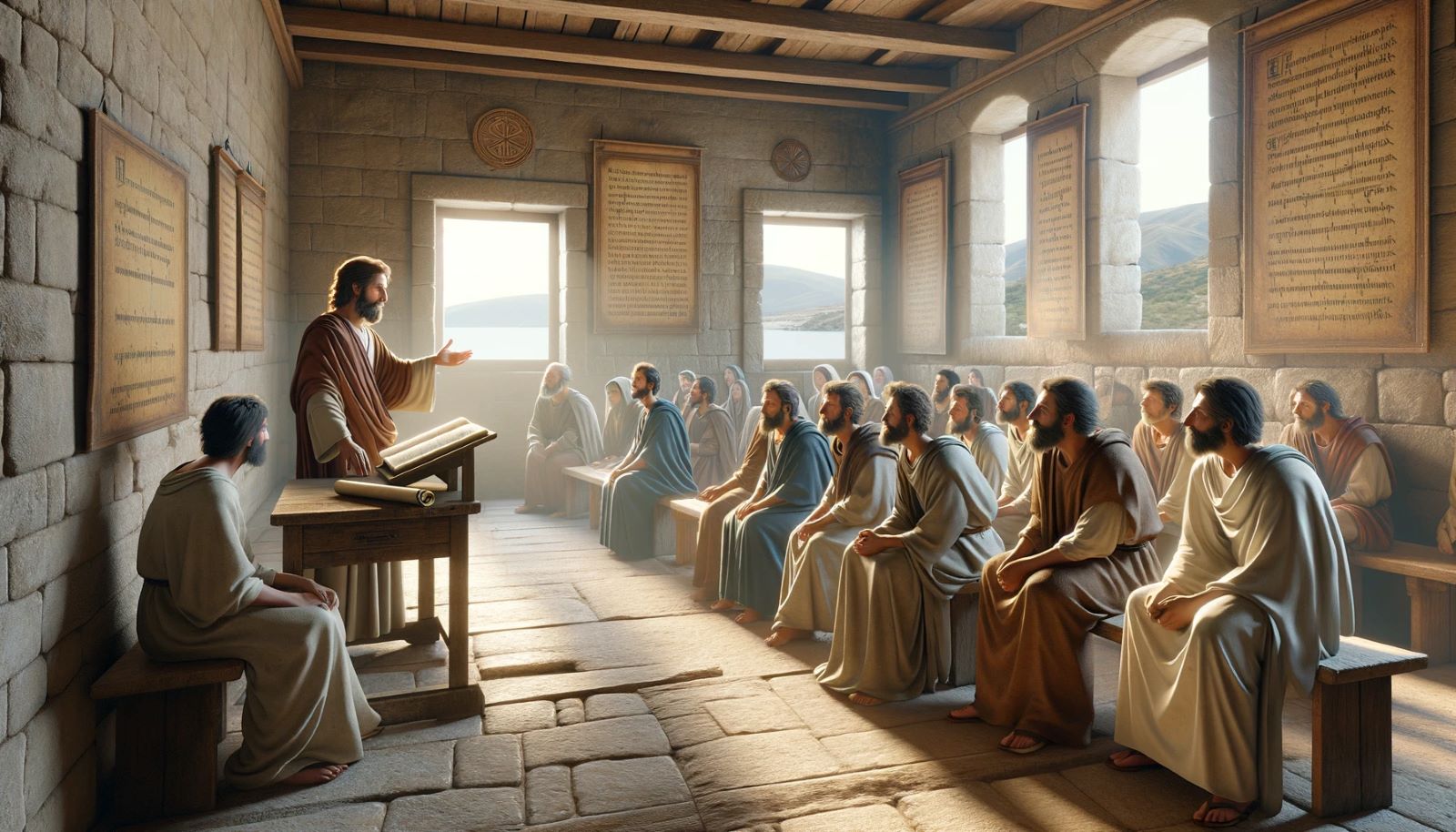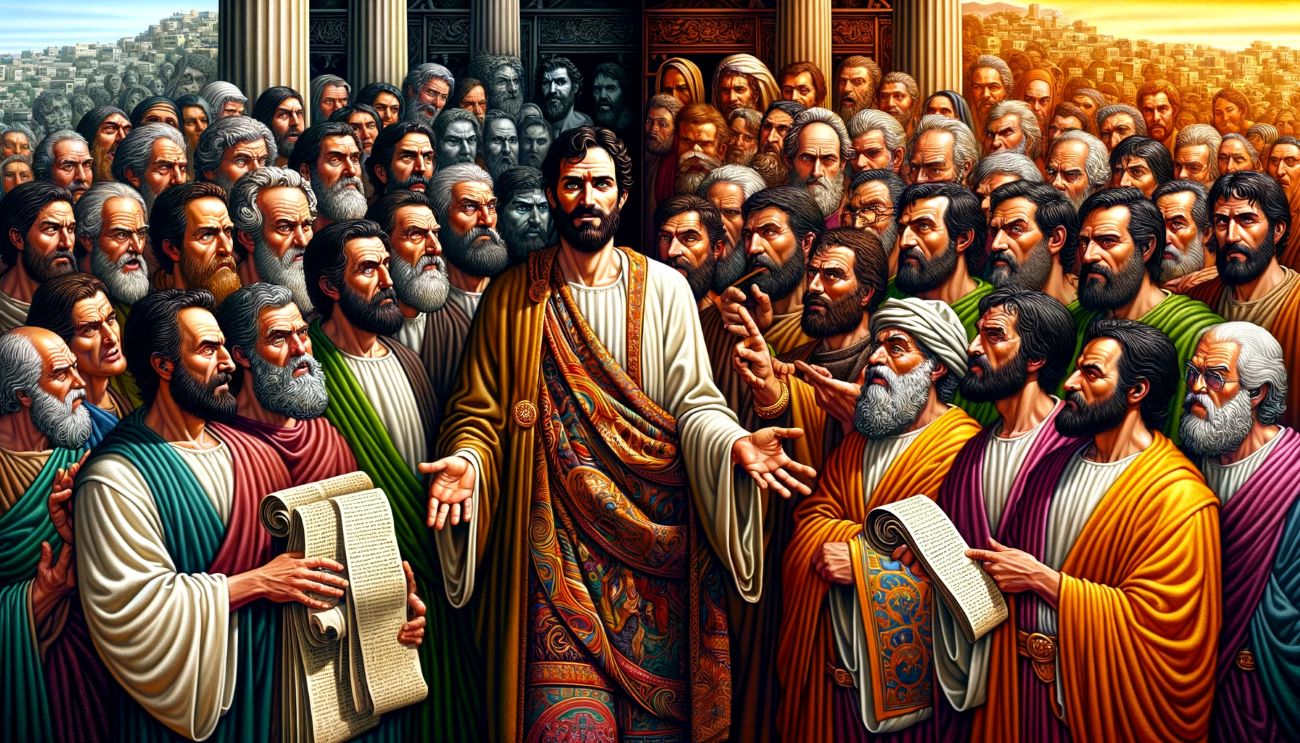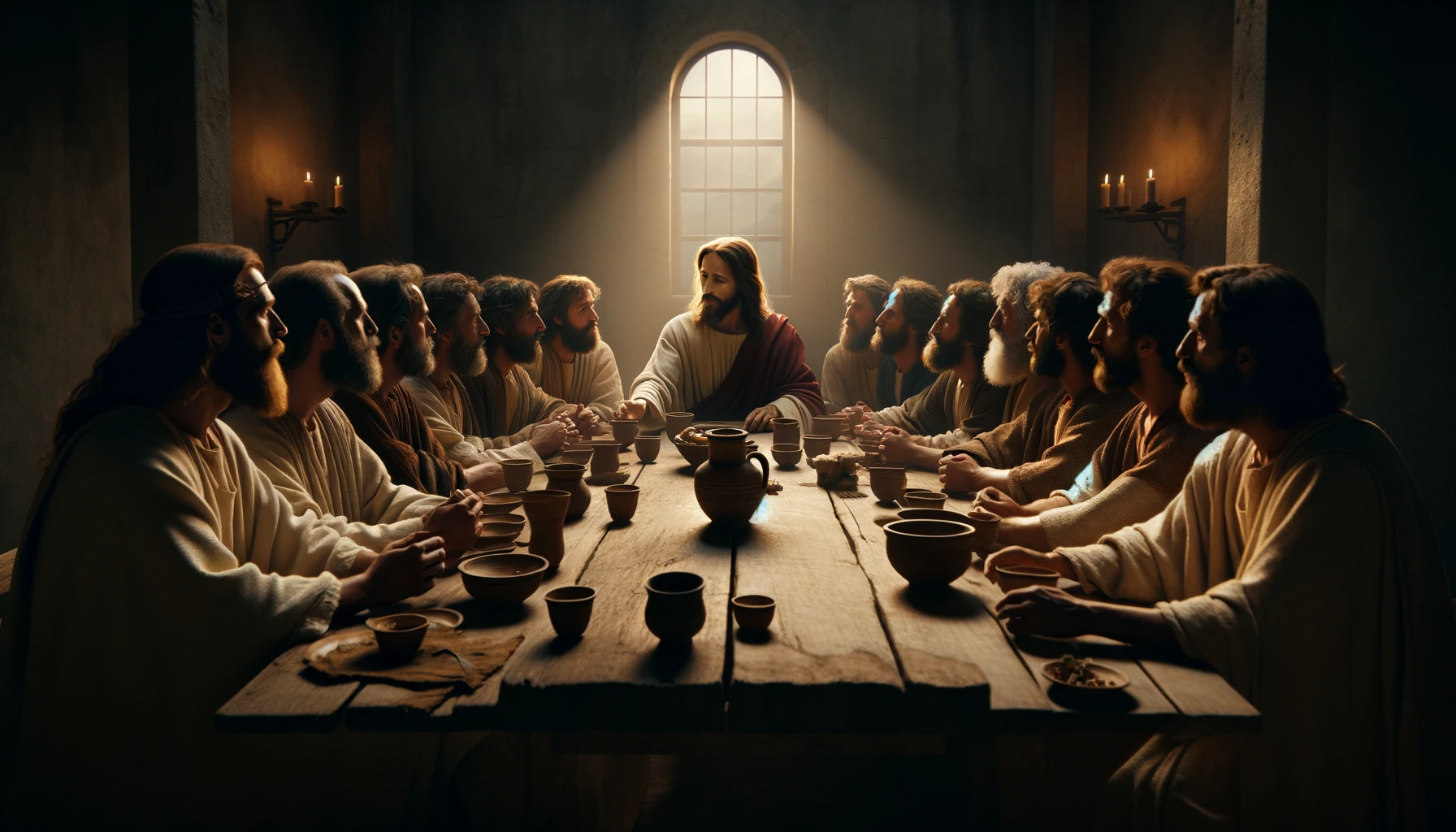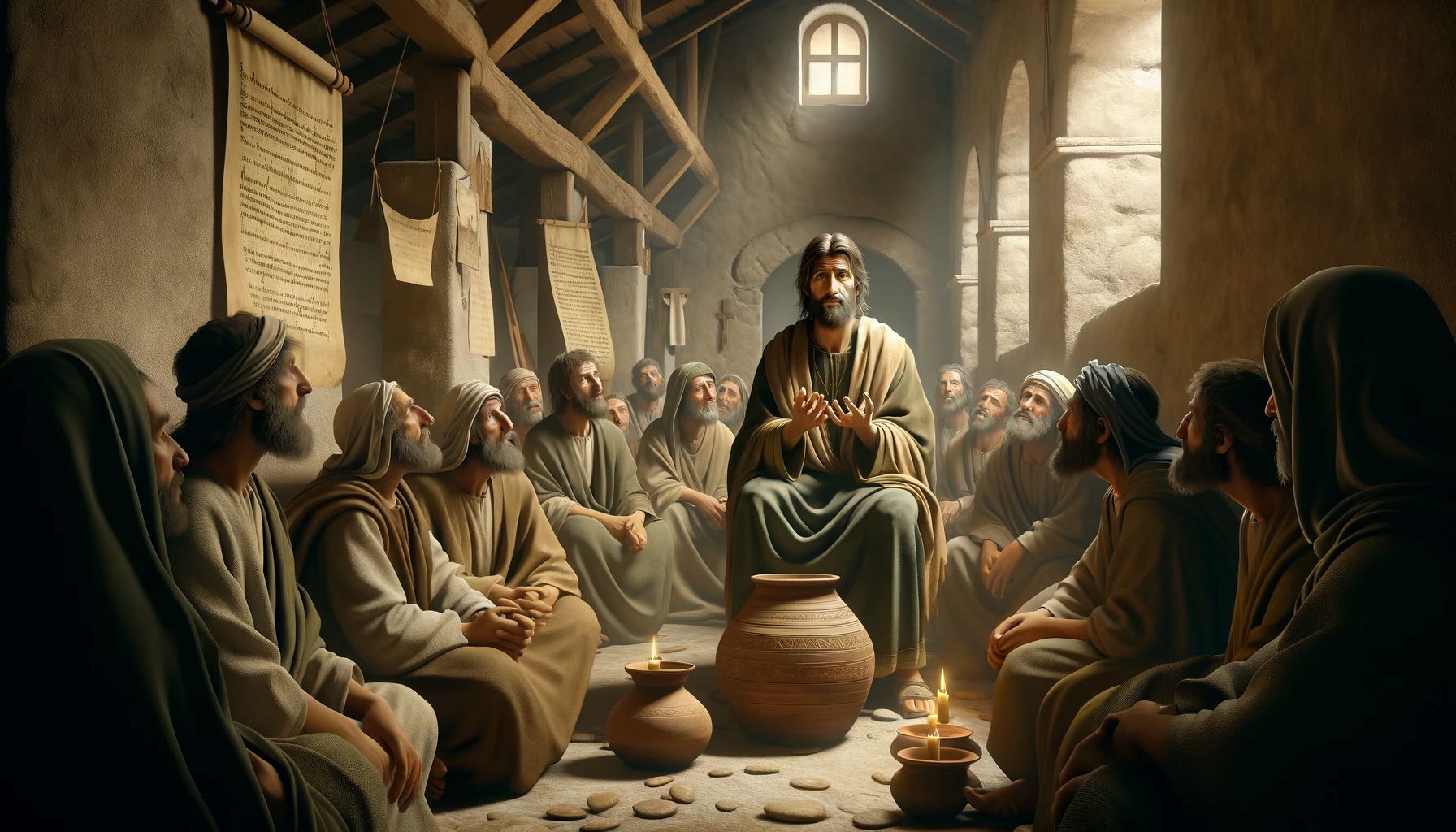Home>Bible Facts>Who Were The Super Apostles
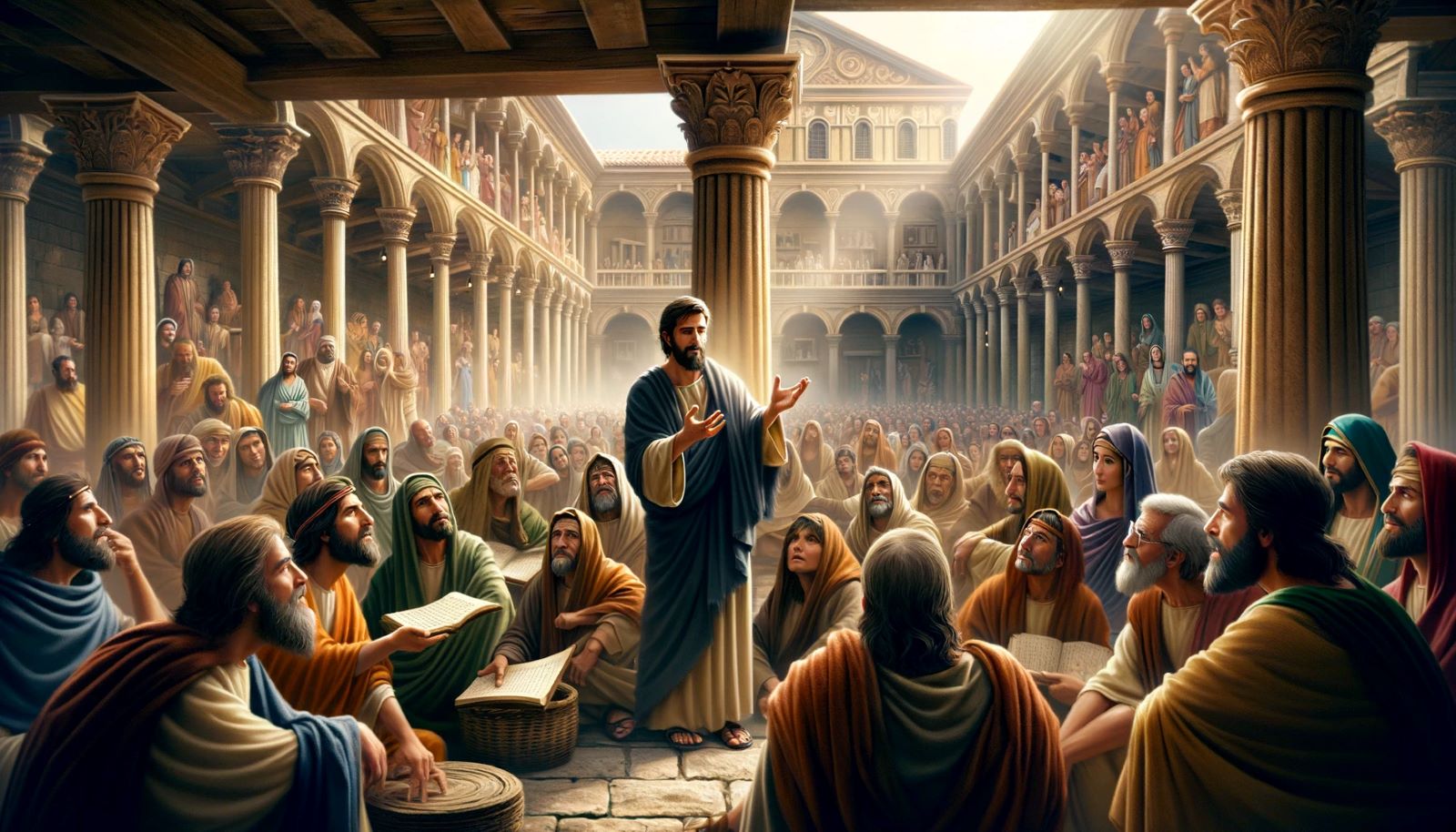

Bible Facts
Who Were The Super Apostles
Published: February 17, 2024
Jason DeRose, Managing Editor at Christian.net, uses his expertise in religion and journalism to deepen understanding of faith's societal impacts. His editorial leadership, coupled with a strong academic background, enriches the platform’s diverse content, earning him recognition in both journalism and religious circles.
Discover fascinating Bible facts about the Super Apostles and their significance in Christian history. Learn more about their impact and influence.
(Many of the links in this article redirect to a specific reviewed product. Your purchase of these products through affiliate links helps to generate commission for Christian.net, at no extra cost. Learn more)
Table of Contents
Introduction
The term "Super Apostles" may evoke images of extraordinary individuals with exceptional powers, akin to superheroes in popular culture. However, within the context of biblical history, the concept of Super Apostles holds a different significance. In the New Testament, the term "Super Apostles" is mentioned in the writings of the apostle Paul, specifically in his second letter to the Corinthians. This intriguing designation raises questions about the identity, characteristics, and role of these individuals within the early Christian community.
The mention of Super Apostles in the biblical narrative invites us to explore the unique attributes and contributions of these figures, shedding light on their significance in the development of early Christianity. By delving into the historical and theological context surrounding the Super Apostles, we can gain a deeper understanding of their impact on the early church and the controversies that arose in relation to their influence.
As we embark on this exploration, it is essential to approach the topic with an open mind, ready to uncover the complexities and nuances that define the concept of Super Apostles. Through an examination of biblical passages, historical accounts, and scholarly insights, we can unravel the layers of meaning behind this intriguing designation and appreciate its relevance in shaping the landscape of early Christianity.
The journey to comprehend the essence of Super Apostles will lead us to discover the multifaceted nature of their roles, the controversies that surrounded their presence, and the enduring legacy they left within the annals of Christian history. Join us as we embark on a captivating exploration of the enigmatic Super Apostles, unraveling the mysteries and significance of these influential figures in the tapestry of early Christianity.
Read more: Who Were The Successors Of The Apostles
The Definition of Super Apostles
The term "Super Apostles" originates from the writings of the apostle Paul, specifically in his second letter to the Corinthians. In this epistle, Paul employs the term to distinguish a group of individuals who were perceived as influential figures within the early Christian community. The designation of "Super Apostles" implies a certain level of prominence and authority attributed to these individuals, setting them apart from the broader category of apostles.
The term "Super Apostles" denotes individuals who held significant sway and influence within the early Christian church. While the exact identity of these figures remains a subject of scholarly debate, it is evident that they were regarded as prominent leaders, possibly exercising authority over specific congregations or regions. Their influence extended beyond the confines of local communities, positioning them as key players in the broader landscape of early Christianity.
Moreover, the designation of "Super Apostles" implies a certain degree of recognition and respect accorded to these individuals by their contemporaries. Their status as "Super Apostles" suggests that they were perceived as exemplary figures, possessing qualities and accomplishments that set them apart from other apostolic figures of their time. This distinction underscores the exceptional nature of their contributions and the impact they had on the early Christian movement.
It is important to note that the term "Super Apostles" does not imply a hierarchical structure within the apostolic ministry, as the early Christian community valued the principles of equality and mutual respect among its members. Instead, the designation serves to highlight the unique attributes and influential roles played by these individuals in advancing the message of Christianity and nurturing the growth of the early church.
In essence, the term "Super Apostles" encapsulates the notion of exceptional leadership, influence, and impact within the early Christian context. It signifies a recognition of outstanding contributions and a level of authority that distinguished these individuals as prominent figures in the unfolding narrative of early Christianity. As we delve deeper into the characteristics and roles of the Super Apostles, we will gain a more comprehensive understanding of their significance within the tapestry of biblical history.
The Characteristics of Super Apostles
The Super Apostles, as depicted in the writings of the apostle Paul, exhibit distinctive characteristics that set them apart as influential figures within the early Christian community. These defining traits offer valuable insights into the nature of their leadership, impact, and contributions to the burgeoning movement of Christianity.
1. Exceptional Eloquence and Persuasiveness
The Super Apostles were known for their remarkable oratorical skills and persuasive abilities. Their eloquence and compelling rhetoric enabled them to effectively communicate the message of Christianity, captivating audiences and garnering support for the burgeoning faith. Their persuasive prowess played a pivotal role in disseminating the teachings of Jesus Christ and fostering the growth of Christian communities.
2. Notable Signs and Wonders
These prominent figures were associated with the manifestation of extraordinary signs and wonders, demonstrating the divine power at work through their ministry. Miraculous healings, exorcisms, and other supernatural phenomena were attributed to the Super Apostles, serving as compelling testimonies to the authenticity of their message and the divine authority under which they operated.
Read more: Who Were Jesus Apostles
3. Charismatic Leadership
The Super Apostles exuded a charismatic presence and leadership style that drew followers and inspired devotion. Their ability to mobilize and galvanize communities, coupled with a magnetic charm and compelling vision, contributed to their influential status within the early Christian movement.
4. Strategic Networking and Alliances
These influential figures were adept at forming strategic alliances and networks, forging connections with key individuals and communities to advance the cause of Christianity. Their ability to navigate diverse social and cultural contexts enabled them to extend the reach of the Christian message and establish a widespread network of support.
5. Controversial Influence
The Super Apostles' influence was not without controversy, as their prominence and methods occasionally sparked debates and challenges within the early Christian community. Their assertive approach and distinct theological emphases sometimes led to tensions and disagreements, underscoring the complex dynamics of their impact on the evolving landscape of early Christianity.
6. Enduring Legacy
The enduring legacy of the Super Apostles is evidenced by their lasting impact on the trajectory of early Christianity. Their contributions, though subject to scrutiny and debate, left an indelible mark on the development of Christian theology, ecclesiastical structures, and the spread of the gospel message across diverse regions.
In summary, the Super Apostles embodied a combination of exceptional qualities and influential characteristics that distinguished them as prominent figures within the early Christian community. Their eloquence, miraculous demonstrations, charismatic leadership, strategic acumen, controversial influence, and enduring legacy collectively define their unique place in the annals of biblical history.
Read more: Who Were The Wives Of The Apostles
The Role of Super Apostles in the Early Church
The Super Apostles played a pivotal role in shaping the landscape of the early Christian church, wielding significant influence and contributing to the expansion and consolidation of the burgeoning faith. Their multifaceted roles encompassed a wide array of responsibilities and activities that left an indelible mark on the development of early Christianity.
1. Pioneering Missionary Endeavors
The Super Apostles were instrumental in spearheading missionary endeavors aimed at propagating the message of Christianity to diverse regions and communities. Their fervent commitment to spreading the gospel led to the establishment of new congregations and the conversion of individuals from varying cultural and religious backgrounds. Through their missionary zeal, the Super Apostles played a crucial role in laying the foundation for the global dissemination of Christian teachings.
2. Nurturing and Guiding Christian Communities
These influential figures assumed the responsibility of nurturing and guiding Christian communities, providing spiritual leadership, pastoral care, and doctrinal instruction. Their presence and guidance served to fortify the fledgling congregations, fostering a sense of unity, faith, and resilience amidst the challenges and adversities encountered by early Christians. The Super Apostles' pastoral roles contributed to the spiritual maturation and cohesion of local assemblies, laying the groundwork for the enduring legacy of Christian fellowship.
3. Defending and Propagating Christian Doctrine
The Super Apostles actively engaged in defending and propagating Christian doctrine, addressing theological controversies and safeguarding the integrity of the faith. Their articulate defense of core Christian beliefs and teachings served to fortify the doctrinal foundations of the early church, countering erroneous interpretations and ideological threats. Through their unwavering commitment to upholding sound doctrine, the Super Apostles played a crucial role in preserving the doctrinal purity of early Christianity.
Read more: Who Were The Apostles Of The Bible
4. Fostering Unity and Collaboration
These influential figures sought to foster unity and collaboration among diverse Christian communities, transcending cultural, ethnic, and social barriers. Their efforts to promote solidarity and mutual support contributed to the cohesiveness of the early Christian movement, fostering a sense of shared identity and purpose among believers. The Super Apostles' emphasis on unity and collaboration laid the groundwork for the interconnectedness of the early church, fostering a sense of collective responsibility and shared mission.
5. Exercising Spiritual Authority and Oversight
The Super Apostles exercised spiritual authority and oversight within the early Christian church, assuming leadership roles that involved providing guidance, resolving disputes, and ensuring the spiritual well-being of believers. Their pastoral oversight and authoritative leadership contributed to the stability and orderliness of Christian communities, fostering a climate of spiritual growth, accountability, and ethical conduct. The Super Apostles' exercise of spiritual authority served to uphold the integrity and vitality of the early church.
In essence, the Super Apostles played a multifaceted and indispensable role in the early Christian church, encompassing missionary fervor, pastoral care, doctrinal defense, unity promotion, and spiritual oversight. Their collective contributions shaped the trajectory of early Christianity, leaving an enduring legacy that continues to resonate within the contemporary Christian faith.
The Controversy Surrounding Super Apostles
The prominence and influence of the Super Apostles within the early Christian community were not without controversy. Their assertive leadership, distinct theological emphases, and charismatic appeal occasionally sparked debates and challenges, underscoring the complex dynamics of their impact on the evolving landscape of early Christianity.
One of the primary sources of controversy surrounding the Super Apostles stemmed from their perceived deviation from the teachings and practices advocated by the apostle Paul. Paul, in his second letter to the Corinthians, expressed concerns about the influence of these individuals, highlighting potential discrepancies in their theological perspectives and ministerial approaches. This discord gave rise to tensions and divisions within the Corinthian church, as conflicting allegiances and doctrinal interpretations emerged, posing a significant challenge to the unity and coherence of the Christian community.
Furthermore, the charismatic aura and persuasive prowess of the Super Apostles raised questions about the authenticity and motives of their ministry. Their remarkable oratorical skills and ability to perform extraordinary signs and wonders led to scrutiny and skepticism from both within and outside the Christian fold. The allure of their charismatic leadership and the sensational nature of their demonstrations prompted discerning observers to question the source of their authority and the veracity of their message, fueling suspicions and apprehensions regarding the legitimacy of their claims.
The controversial influence of the Super Apostles also extended to their interactions with other apostolic figures and Christian communities. Their strategic networking and alliances, while instrumental in expanding the reach of Christianity, also engendered rivalries and power struggles, as differing factions vied for prominence and influence. This competitive dynamic gave rise to interpersonal conflicts and theological disputes, further complicating the already intricate tapestry of early Christian relationships and collaborations.
Moreover, the controversies surrounding the Super Apostles underscored broader issues related to the nature of authority, leadership, and doctrinal orthodoxy within the early Christian church. Their perceived deviation from established norms and their unorthodox methods of ministry prompted soul-searching discussions about the parameters of apostolic authority and the boundaries of acceptable Christian praxis. These deliberations contributed to the formulation of theological frameworks and ecclesiastical structures aimed at addressing and mitigating the challenges posed by the enigmatic influence of the Super Apostles.
In summary, the controversies surrounding the Super Apostles reflect the complex interplay of theological, interpersonal, and communal dynamics within the early Christian church. Their enigmatic presence and influential sway gave rise to multifaceted debates and tensions, prompting a reevaluation of fundamental aspects of Christian identity and practice. The enduring legacy of these controversies serves as a testament to the enduring impact of the Super Apostles on the trajectory of early Christianity, leaving an indelible imprint on the historical narrative of the Christian faith.
The Legacy of Super Apostles
The legacy of the Super Apostles reverberates throughout the annals of early Christian history, leaving an indelible imprint on the trajectory of the burgeoning faith. Their multifaceted roles, influential sway, and enduring impact have contributed to the shaping of Christian theology, ecclesiastical structures, and the spread of the gospel message across diverse regions.
The enduring legacy of the Super Apostles is evidenced by their lasting impact on the development of Christian theology. Their articulate defense of core Christian beliefs and teachings served to fortify the doctrinal foundations of the early church, countering erroneous interpretations and ideological threats. Through their unwavering commitment to upholding sound doctrine, the Super Apostles played a crucial role in preserving the doctrinal purity of early Christianity.
Furthermore, the Super Apostles' influence transcended geographical boundaries, as they spearheaded missionary endeavors aimed at propagating the message of Christianity to diverse regions and communities. Their fervent commitment to spreading the gospel led to the establishment of new congregations and the conversion of individuals from varying cultural and religious backgrounds. Through their missionary zeal, the Super Apostles played a crucial role in laying the foundation for the global dissemination of Christian teachings.
The enduring legacy of the Super Apostles also encompasses their pastoral roles, as they assumed the responsibility of nurturing and guiding Christian communities. Their presence and guidance served to fortify the fledgling congregations, fostering a sense of unity, faith, and resilience amidst the challenges and adversities encountered by early Christians. The Super Apostles' pastoral oversight and authoritative leadership contributed to the stability and orderliness of Christian communities, fostering a climate of spiritual growth, accountability, and ethical conduct.
Moreover, the enduring legacy of the Super Apostles is reflected in their efforts to foster unity and collaboration among diverse Christian communities, transcending cultural, ethnic, and social barriers. Their emphasis on unity and collaboration laid the groundwork for the interconnectedness of the early church, fostering a sense of collective responsibility and shared mission among believers.
In essence, the legacy of the Super Apostles is characterized by their profound impact on the theological, missionary, pastoral, and communal dimensions of early Christianity. Their enduring influence continues to resonate within the contemporary Christian faith, serving as a testament to their pivotal role in shaping the narrative of the early church and laying the groundwork for the global expansion of Christianity.
